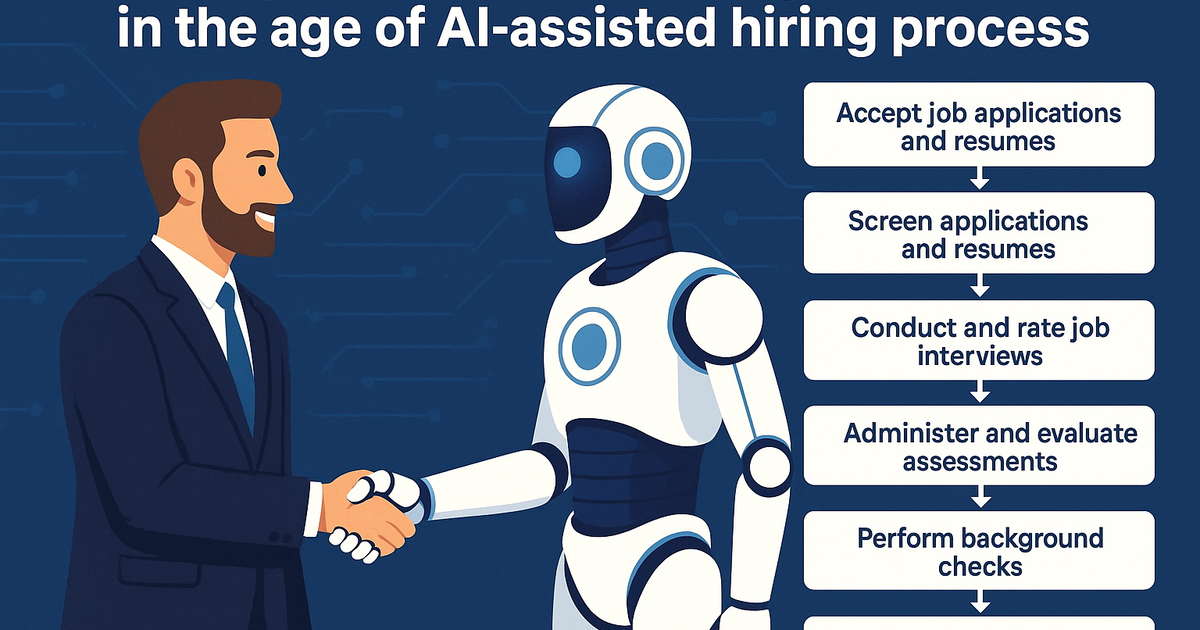
Artificial intelligence (AI) has revolutionized how we recruit and select talent. HR and hiring managers are no longer just recruiters. They are strategic supervisors of the whole AI ecosystem. The new challenge is to lead responsibly, ensuring that technology enhances rather than replaces human judgment.
The Big Question
In our recent publication in the Journal of Hospitality & Tourism Research, “Staying ahead: A critical assessment of the GenAI-assisted hiring process using the OECD AI Principles,” my coauthors Drs. Ning-Kuang Chuang, Yung-Kuei Huang, and I address the following question:
How can hospitality and tourism (H&T) firms remain competitive, relevant, and compliant with the global AI standards (e.g., the OECD AI Principles)?
How HR and Hiring Managers Lead AI-Assisted Hiring Responsibly
AI has significantly improved hiring efficiency, from automating job postings and resume screening to scheduling and conducting job interviews and drafting job offers. However, efficiency also brings new ethical concerns and operational responsibilities. Hiring managers must maintain human oversight and align their practices with the OECD’s five principles for trustworthy AI: fairness, transparency, accountability, safety, and social well-being.
While we strongly encourage hiring managers to embrace new technologies, we also provide specific recommendations to help H&T organizations and their hiring managers stay ahead in the still-evolving AI-assisted hiring process:
- Accept job applications and resumes – Regularly monitor and update AI-powered job portals to ensure cybersecurity and accessibility. Maintain transparent and timely communication with candidates, and use real-time AI insights for improvements.
- Screen applications and resumes – Continuously check the validity and fairness of AI screening tools. Compare AI outputs with human evaluations to maintain accuracy, and document these reviews for compliance and legal defense.
- Conduct and rate job interview(s) – Disclose how AI evaluates candidates and offer guidelines and feedback to ensure fairness. Establish clear links between AI-generated interview measures and the skills required for each job, and routinely assess the validity of AI interview analyses.
- Administer and evaluate assessments if needed – Confirmed that AI assessments measure job-relevant skills and are fair across demographic groups. Track performance outcomes over time to identify improvements.
- Perform background checks – Ensure that AI-generated candidate narratives are accurate and ethically sourced. Disclose the use of GenAI and allow candidates to respond to the AI-generated narratives about them. Balance the use of public data with privacy and fairness considerations.
- Extend a job offer – Use AI to benchmark wages and benefits while ensuring transparency in compensation decisions. Combine AI insights with human empathy to create personalized job offers.
Overall, leading with trustworthy AI means keeping the human touch at the center of the hiring process. While AI can accelerate and even make decisions, it is humans who define fairness, ensure compliance, and uphold the ethical standards.
Advice for Job Seekers
Reflecting on our critical assessment of how AI has revolutionized the hiring process and transformed HR functions, we also proposed a series of actionable recommendations for job seekers to help them navigate the still-evolving GenAI-assisted hiring process. Please stay tuned for my next highlight.
How can we ensure that AI remains an assistant, not a substitute, in hiring decisions? What governance systems can your organization build to promote fairness and transparency in AI-driven recruitment?
Linchi Kwok
Professor at The Collins College of Hospitality Management, Cal Poly Pomona
CAL Poly Pomona
View source
Please visit:
Our Sponsor
